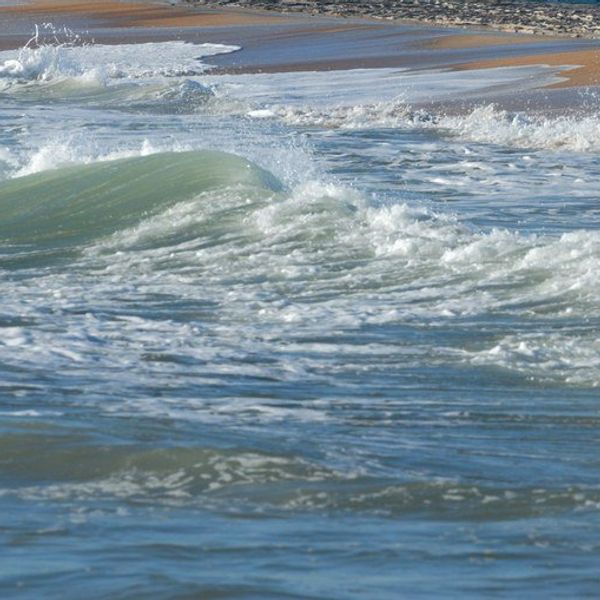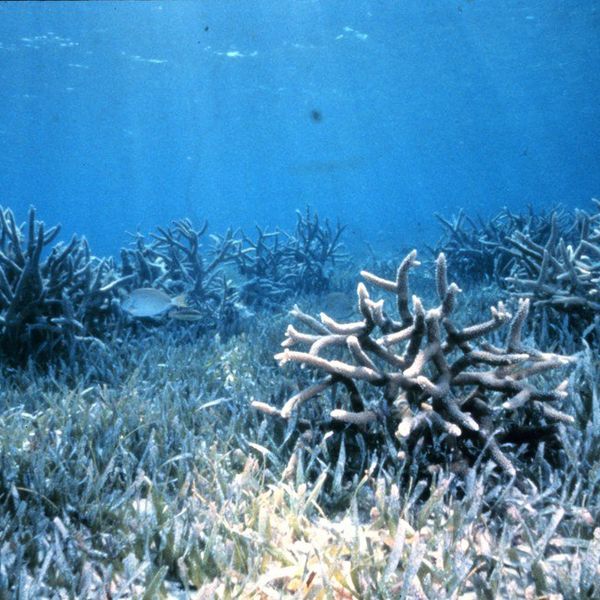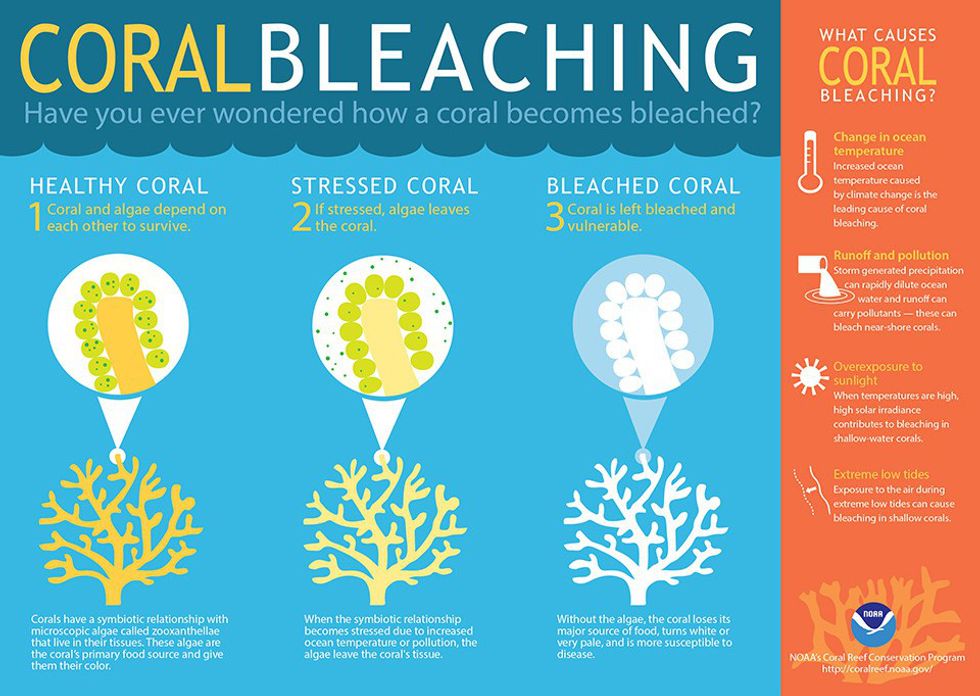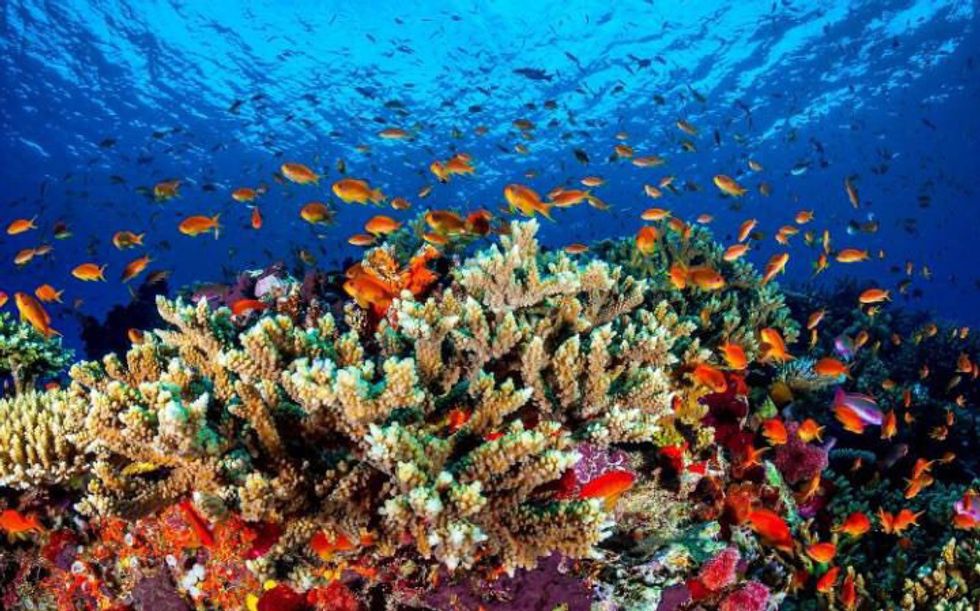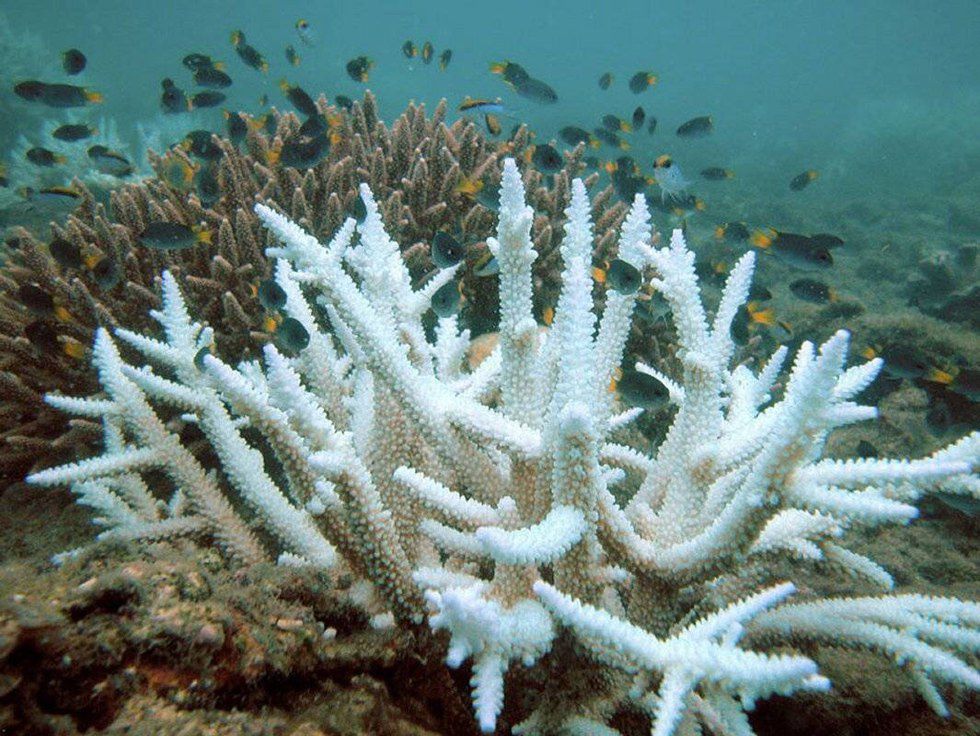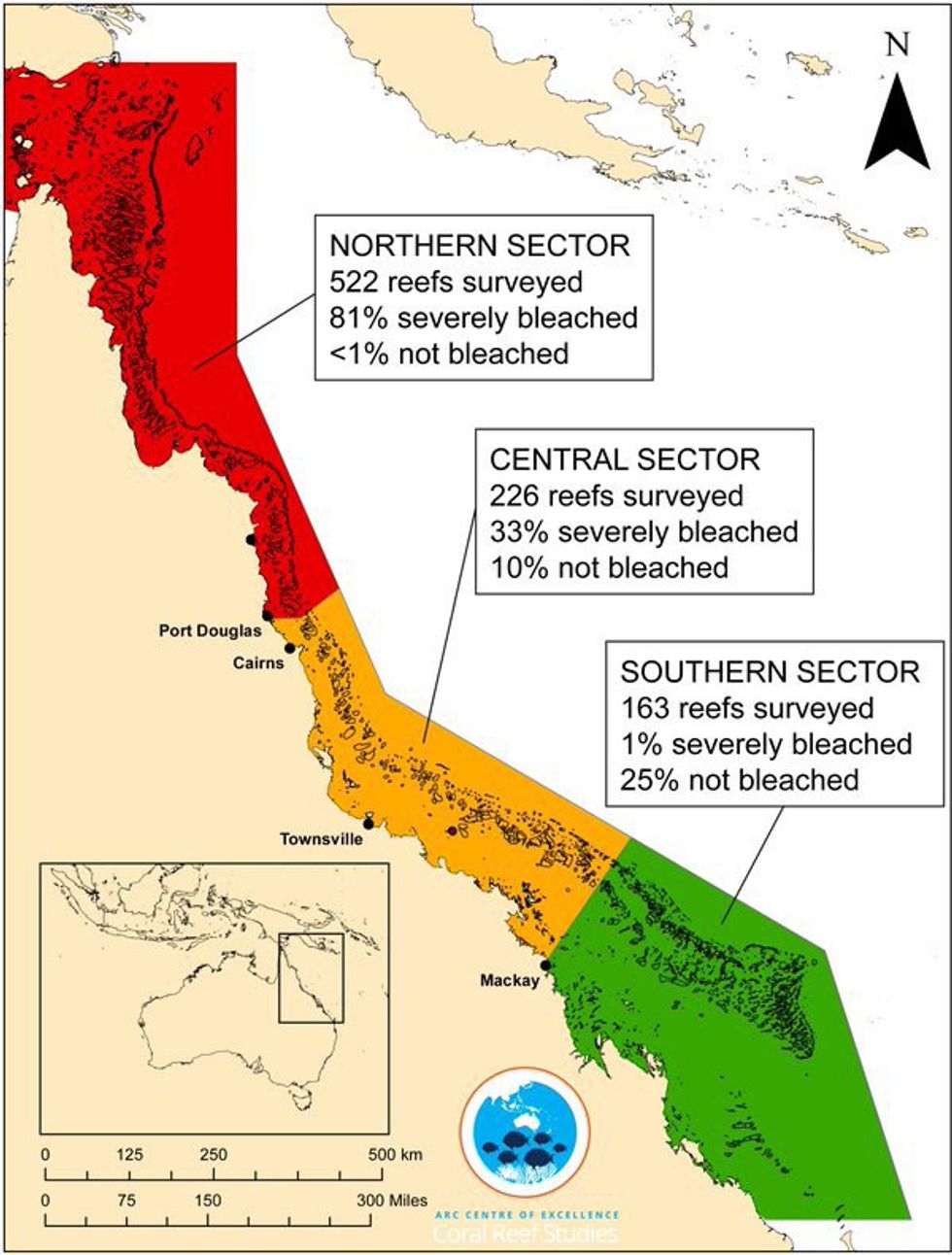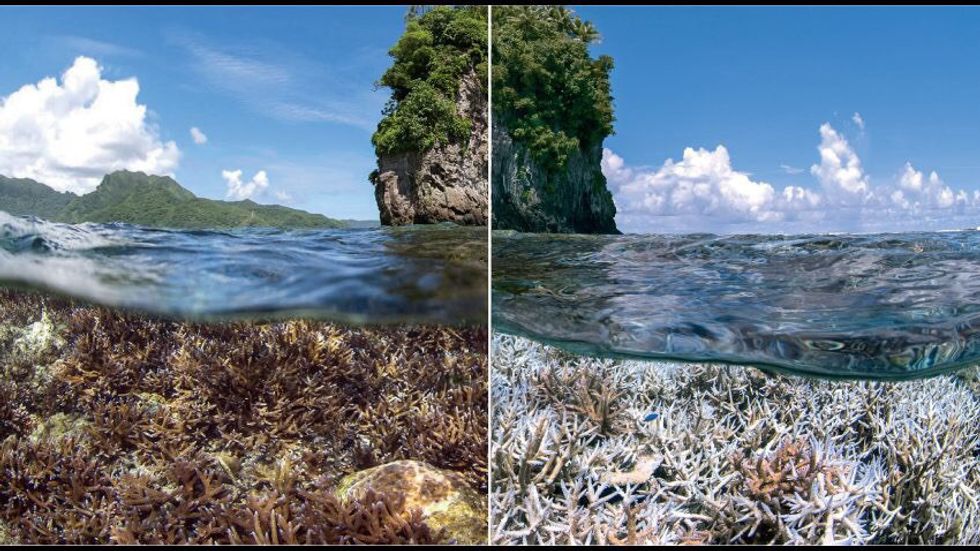According to the National Oceanic and Atmospheric Administration (NOAA), coral bleaching is caused by changes in conditions such as temperature, light, or nutrients. Although coral reefs can survive a stress-caused bleaching event, if the stress is too severe, the coral eventually dies from the prolonged algae loss.
Scientists have mostly speculated that coral bleaching has been the product of global warming, since a warmer water temperature will cause the corals to expel their algae. In the same way, colder temperatures cause the symbiotic relationship between coral and algae to end. When the corals no longer have the algae to depend on as a primary food source, the coral turns completely white. Pollution is also a large factor of coral bleaching; it doesn't allow the coral to receive the nutrients it needs.
Healthy Coral Reef
Bleached Acropora Coral
Recent studies of the Great Barrier Reef's mortality and bleaching rate have sparked controversy in the scientific community. Some claim more damage than others, and the results have been prone to exaggeration. Even so, they all agree there is a problem that should be acknowledged, despite the differing levels of degree. The Australia's coral reef is in great danger and humanity must do whatever possible to save it from a complete wipe-out. All the studies concur that the situation is gravest in the northern sector of the reef; specifically, "in the tip of Cape York and just north of Lizard Island, 250km north of Cairns." (GBRMPA)
Dr. Reichelt, chairman of the Great Barrier Reef Marine Park Authority assured that if Australia doesn't invest $500 million towards protecting the reef, then "it is in serious danger of being irreparably damaged."
Based on the Park's results so far, 22% of Australia's coral reef is now gone. If all goes well, 75% of the reef can hopefully be recovered, if not completely back to health, in a few months.
The Great Barrier Reef isn't the only one disappearing and going through mass bleaching. The coral reefs of Guam's Tumon Bay are also dying and bleaching at a terrifying rate. Whether global warming is ultimately responsible for these events or not, we still have a responsibility towards Earth and our oceans. I've always dreamed of someday visiting the Great Barrier Reef, and it is devastating to think that it might not be there by the time I can go see it. That is a reality that I don't want to face. Please, keep the oceans clean and reduce waste as much as possible in your daily life. The Earth will thank you. The coral reefs will, too.

